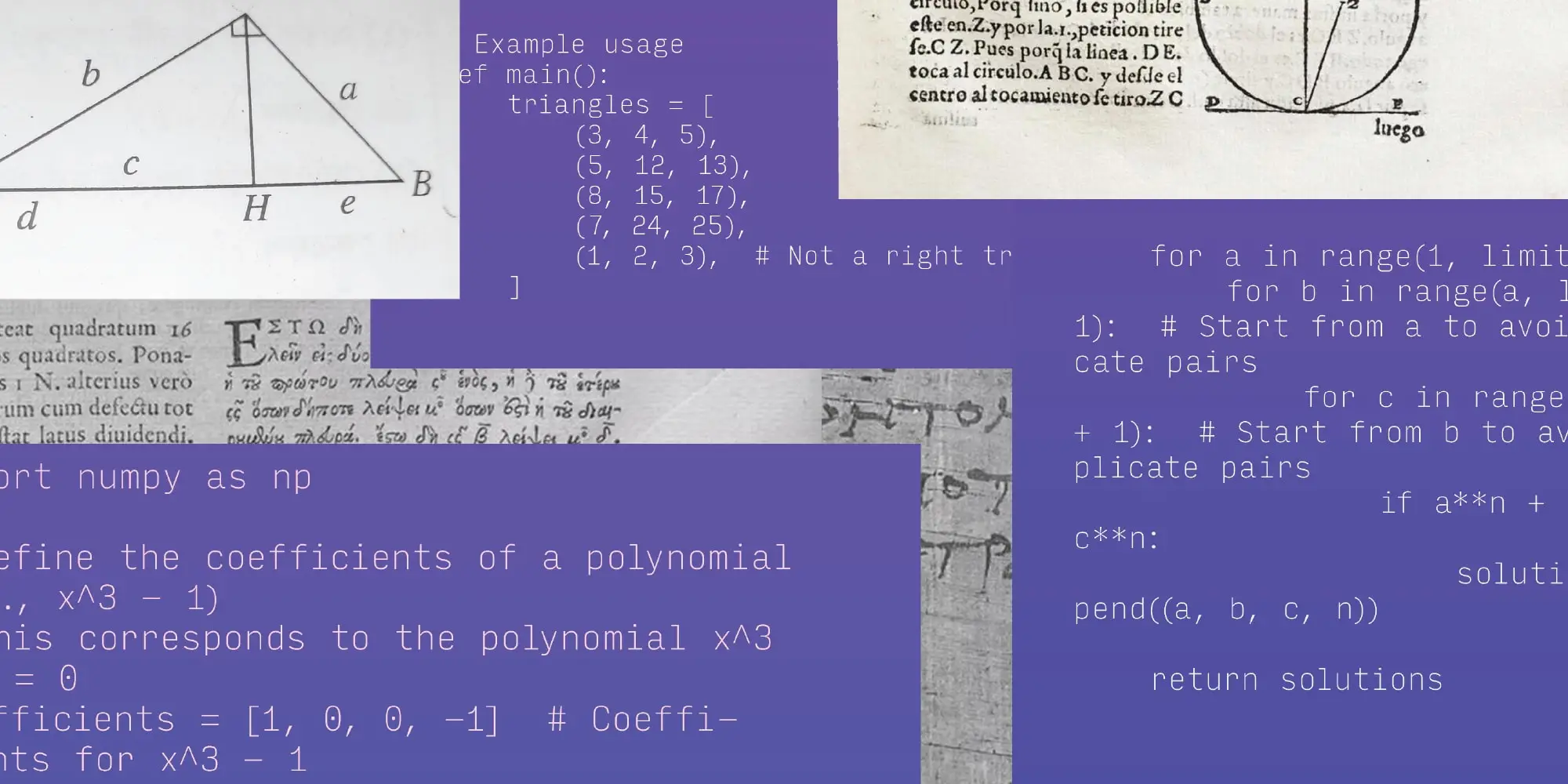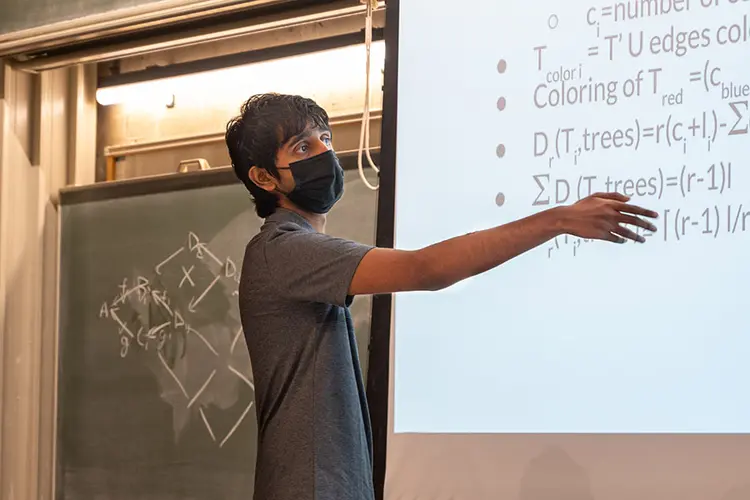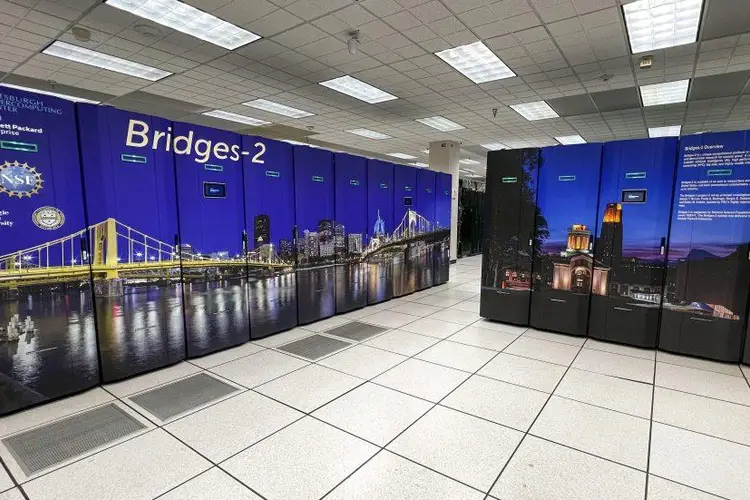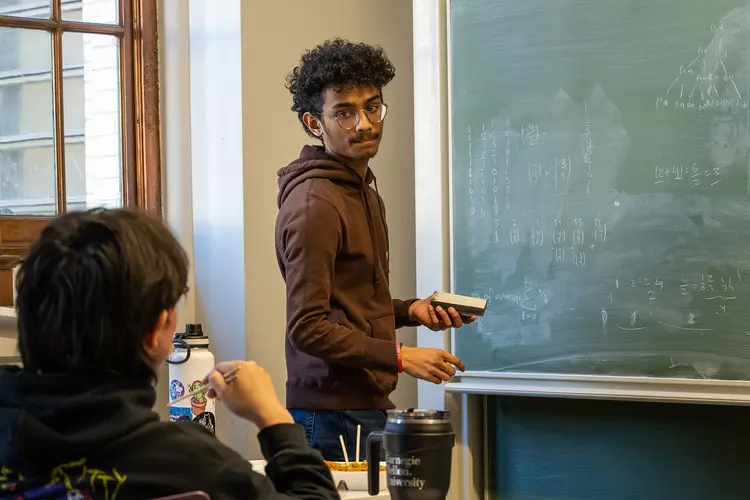
Math Researchers Awarded $2.5M Grant
Funds from NSF’s Frontiers in Applied Analysis program will establish a new cross-disciplinary research training group
Media Inquiries
The agility of machine learning, discovery of new materials, efficiency of transportation, diagnostic power of medical devices, and delight of animated movies can all be attributed to applied analysis research in advanced mathematics.
Math researchers at Carnegie Mellon University have been awarded a multiyear grant from the National Science Foundation (NSF) to establish a new research training group (RTG) in applied analysis. The joint effort, which will cross colleges and engage university partners internationally, will delve into the use of sophisticated mathematical models to solve next-generation challenges in science and technology.
Frontiers in Applied Analysis RTG is a five-year program receiving $1.5 million for the first three years, with an additional $1 million in funding considered for the last two years.
Carnegie Mellon’s Department of Mathematical Sciences will lead the RTG with Professor Dejan Slepčev(opens in new window) as the principal investigator, and University Professor Irene Fonseca(opens in new window), Professor Gautam Iyer(opens in new window), Professor Noel Walkington(opens in new window) and Assistant Professor Robin Neumayer(opens in new window) as the co-principal investigators.
NSF announced five RTG grants in 2024. Slepčev said that these grants are highly competitive because they support the launch of new initiatives that awardees must be able to sustain. In addition to the 2024 award, the Department of Mathematical Sciences(opens in new window) received an RTG grant previously in 2005.
“Math is rigorous study of structures,” Slepčev said. "One defines structures and proves theorems about them — nowadays there are people at CMU in engineering(opens in new window), computer science(opens in new window) and statistics(opens in new window) who are mathematicians by that token. We want to form a better connection between what we do in the department and what is important in the applied fields.”
A dozen senior-level faculty are involved across disciplines, including nine personnel from math, and one each from statistics and data science, civil and environmental engineering, and computer science.
Applied analysis encompasses partial differential equations, calculus of variations, geometric analysis, stochastic analysis, numerical analysis and optimal transportation, and their applications to relevant models in materials science, geometry processing and machine learning.
The Center for Nonlinear Analysis (CNA), a globally recognized center in applied analysis led by Fonseca, will host several of the RTG’s activities. The CNA’s network of engineers, statisticians and physical scientists is a valuable resource for RTG investigators and trainees.
CNA has a weekly seminar featuring talks on diverse topics. Through the RTG grant, CNA added the Mathematics Outside of Mathematics (MOMA) seminar this fall. MOMA is a monthly series devoted to uses of mathematics in the real world and includes a mix of speakers from industry, national labs and other academic units that heavily use mathematics in their work.
“Two aspects are, first, that we want to learn more about mathematical tools that already exist, along with how other disciplines are using them; and second, that we want to learn more about the problems other disciplines want to resolve, so that we can develop new mathematical tools to address them,” Fonseca said.
The grant will support a rich ecosystem of activities with opportunities at all levels to engage faculty, postdoctoral fellows and students in the advancement of research, applications and workforce development.
Training will take place in different forms. The Frontiers in Applied Analysis Workshop, scheduled for June 2025, is one of three biennial workshops at Carnegie Mellon that will invite participants from the U.S. and international partners to share applied analysis research. Summer school programs will take place for postdoctoral fellows, graduate students and advanced undergraduate students in 2026 and 2028. The RTG will hold the Undergraduate Math Research and Opportunities Conference (UMROC) in 2026 and 2029 to ignite enthusiasm for future career and research opportunities.
Postdocs and graduate students will participate in exchange programs to be mentored for periods of two to eight weeks at international partner institutions.
International partnerships are possible thanks to connections Carnegie Mellon has at institutions such as the University of Cambridge in the U.K., École Polytechnique Fédérale de Lausanne (EPFL) in Switzerland, Hausdorff Center for Mathematics in Germany, and the Max Planck Institute for Mathematics in the Sciences (MPI MiS) in Germany.
“Our RTG is interdisciplinary and international,” Fonseca said. “We hope that with these bridges that we already have we can bring some of the best talent and the best expertise that exists in the world in the RTG areas to come to Carnegie Mellon for periods of time to work with us.”
Vertical integration will involve postdocs and graduate students in the planning and implementation of RTG activities to allow them to mentor undergraduate students, as well as be mentored by faculty.
New research-oriented courses will be created on the forefront areas. Each year, Carnegie Mellon will feature at least two graduate topics courses within the themes of the RTG.
The RTG also contains undergraduate research initiatives in the form of the new Team Research Undergraduate Course (TREC) which will run for the first time in the spring of 2025 and a Summer Undergraduate Research Program.
Iyer, who plans to mentor undergraduate students over the summer on themes related to diffusion and mixing, says that he looks forward to the mentoring aspects of the grant.
“It’s important to support our postdocs,” Iyer said. “In math, it’s necessary after earning a Ph.D. to broaden your set of tools in a postdoc position as a proving ground and an extension of your research direction.”
Overall, the RTG will help attract students to applied mathematics and will create a technically trained U.S. workforce with expertise in advanced tools of applied analysis ready to engage with future challenges that arise in applied disciplines.
RTG Team
- Dejan Slepčev, professor of mathematical sciences and associate dean for faculty and graduate affairs
- Irene Fonseca, Kavčić-Moura University Professor of Mathematics and director of Center for Nonlinear Analysis
- Gautam Iyer, professor of mathematical sciences and associate director of the Center for Nonlinear Analysis
- Robin Neumayer, assistant professor of mathematical sciences
- Noel Walkington, professor of mathematical sciences
- Sivaraman Balakrishnan, associate professor of statistics and data science
- Keenan Crane, associate professor of computer science and robotics
- Kaushik Dayal, Walter J. Blenko Senior Professor of Civil and Environmental Engineering
- Giovanni Leoni, professor of mathematical sciences
- Matthew Rosenzweig, assistant professor of mathematical sciences
- Mykhaylo Shkolnikov, professor of mathematical sciences
- Michael Young, associate professor of mathematical sciences and associate dean for diversity, equity and inclusion in the Mellon College of Science


